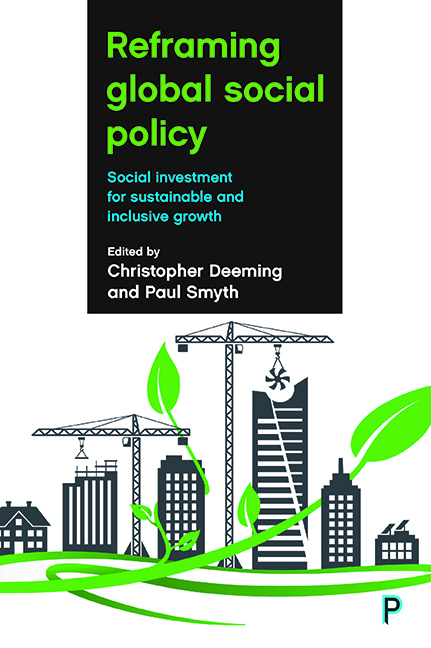Eleven - Social protection, social investment and inclusive development
Published online by Cambridge University Press: 12 April 2022
Summary
The concept of social investment now features prominently in Western and especially European social policy literature. As discussed earlier in this book, social investment is believed to comprise a new paradigm that offers a dynamic alternative to the traditional ‘welfare state’ and its emphasis on social services and income benefits. Instead, the new ‘social investment state’ prioritises interventions that directly link welfare and the economy, promote productive employment and support labour market participation. These interventions include early childhood educational programmes, job training, family leave policies and employment placement services which are usually contrasted with conventional social services and income transfers such as retirement pensions, family welfare services, unemployment benefits and professional social work among others. Catchy epithets such as ‘productive’ versus ‘protective’, ‘preparing’ versus ‘repairing’, and ‘active’ versus ‘passive’ have been invoked to distinguish between social investment and consumption welfare.
In addition to drawing a sharp distinction between investment and consumption, these binary groupings reveal a clear normative preference for the former. This reflects the view that social investment offers a desirable alternative to traditional welfare statism because it enhances capabilities, promotes economic engagement and contributes positively to the economy. Despite their obvious humanitarian impact, traditional welfare programmes are believed to transfer resources from the productive economy to passive welfare recipients. By adopting social investment, governments are better able to deal with economic realities, demographic change and electoral challenges. Also, by recognising that social investments are ‘productivist’, in that they contribute positively to economic development, neoliberal claims about the deleterious consequences of social spending can be effectively challenged.
On the other hand, concern has been expressed that the switch from welfare statism to social investment will abrogate social policy's historic commitment to social rights and concern with those in need (Morel et al, 2012; Cantillon and Van Lancker, 2013). It is also claimed that the new emphasis on social investment will come at the expense of conventional social services and income transfers and contribute to a rise in poverty and deprivation (Cantillon, 2014). However, it has been pointed out that many governments have not in fact reduced spending on social services or income transfers and these programmes are still widely used to maintain the incomes of those in need (Hudson and Kühner, 2012).
- Type
- Chapter
- Information
- Reframing Global Social PolicySocial Investment for Sustainable and Inclusive Growth, pp. 251 - 272Publisher: Bristol University PressPrint publication year: 2017



